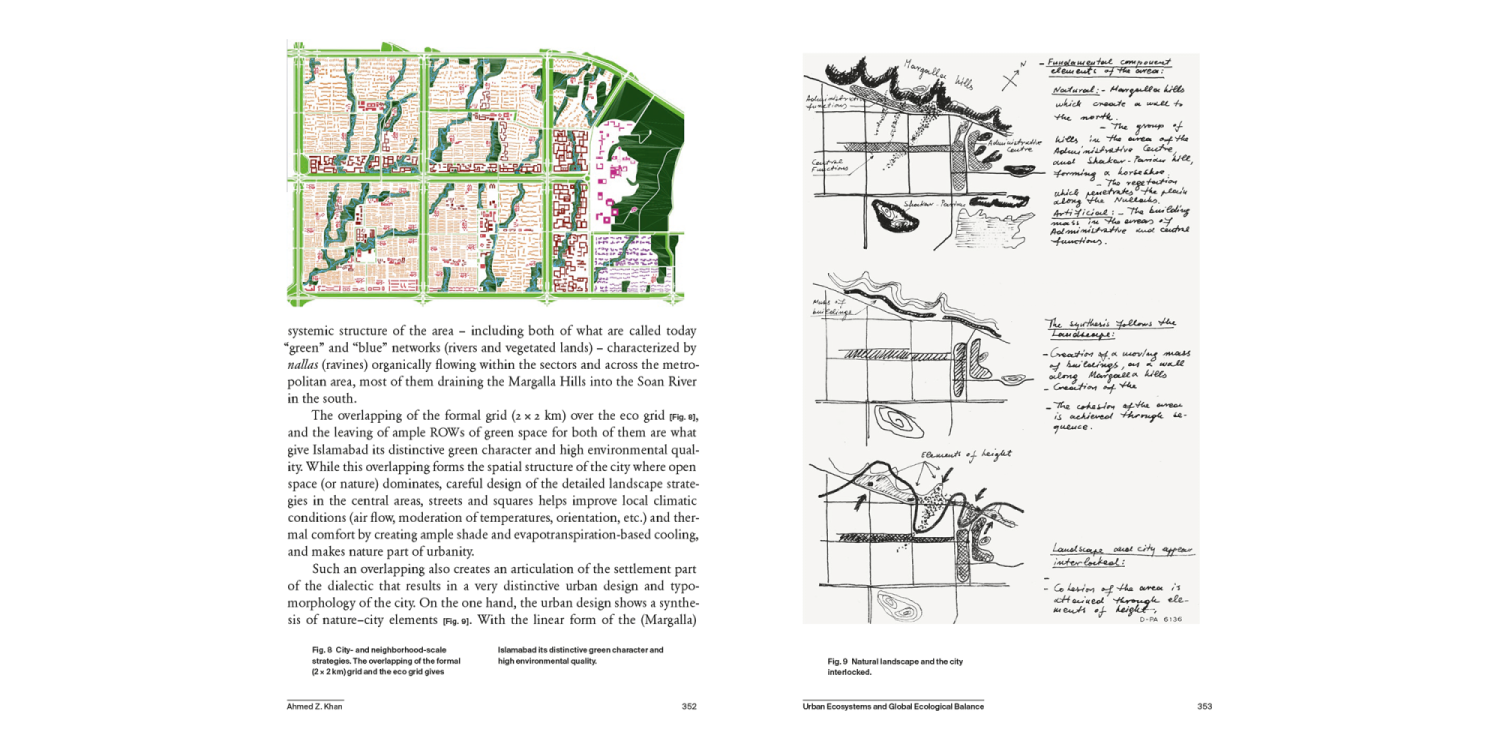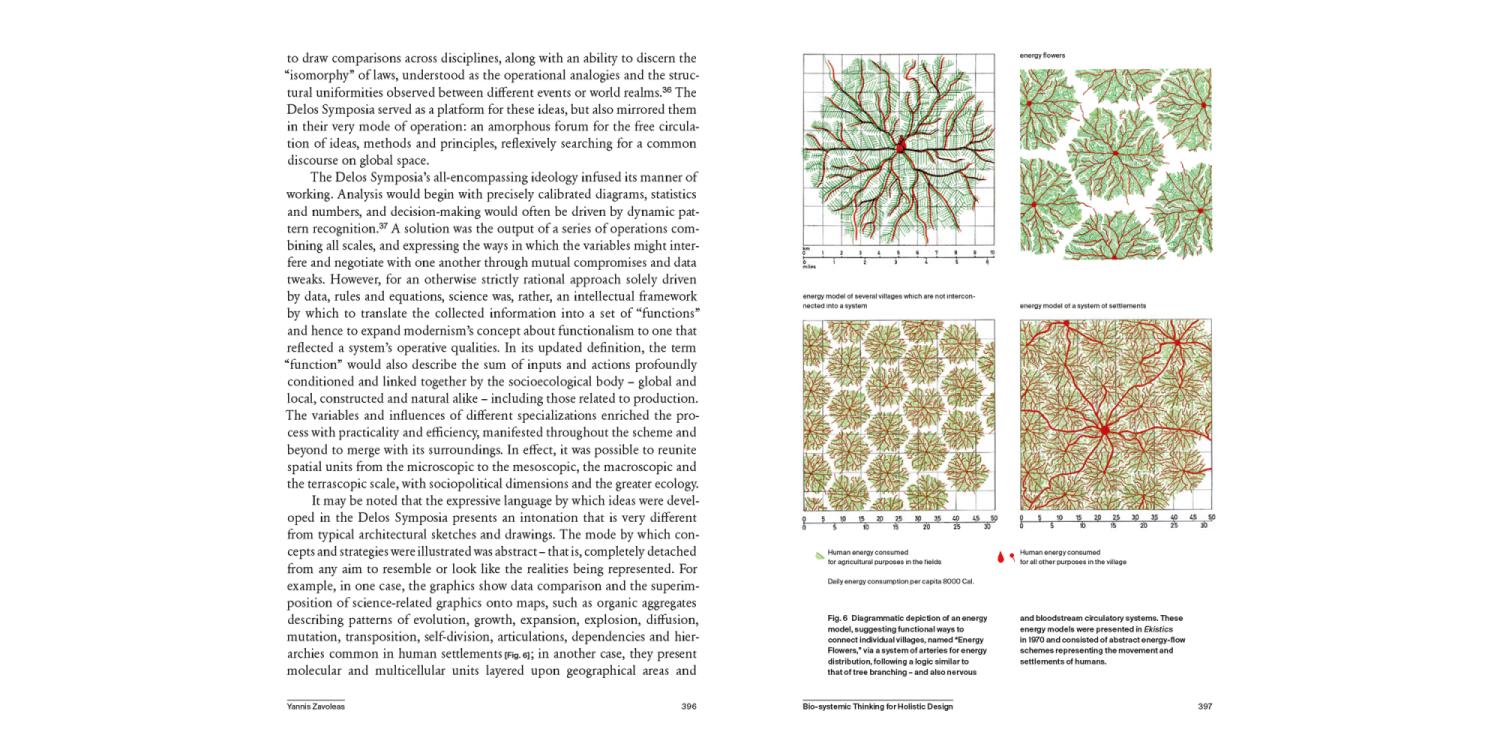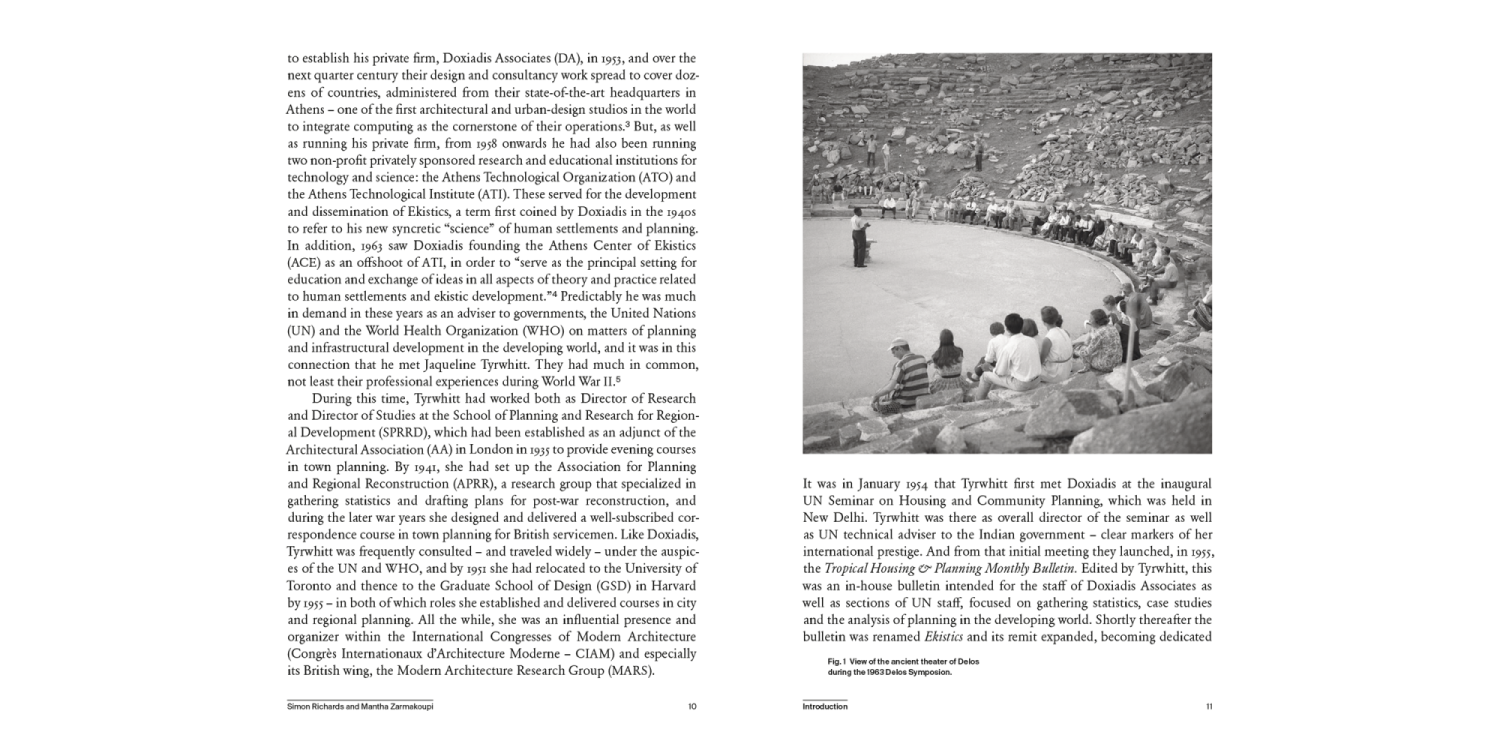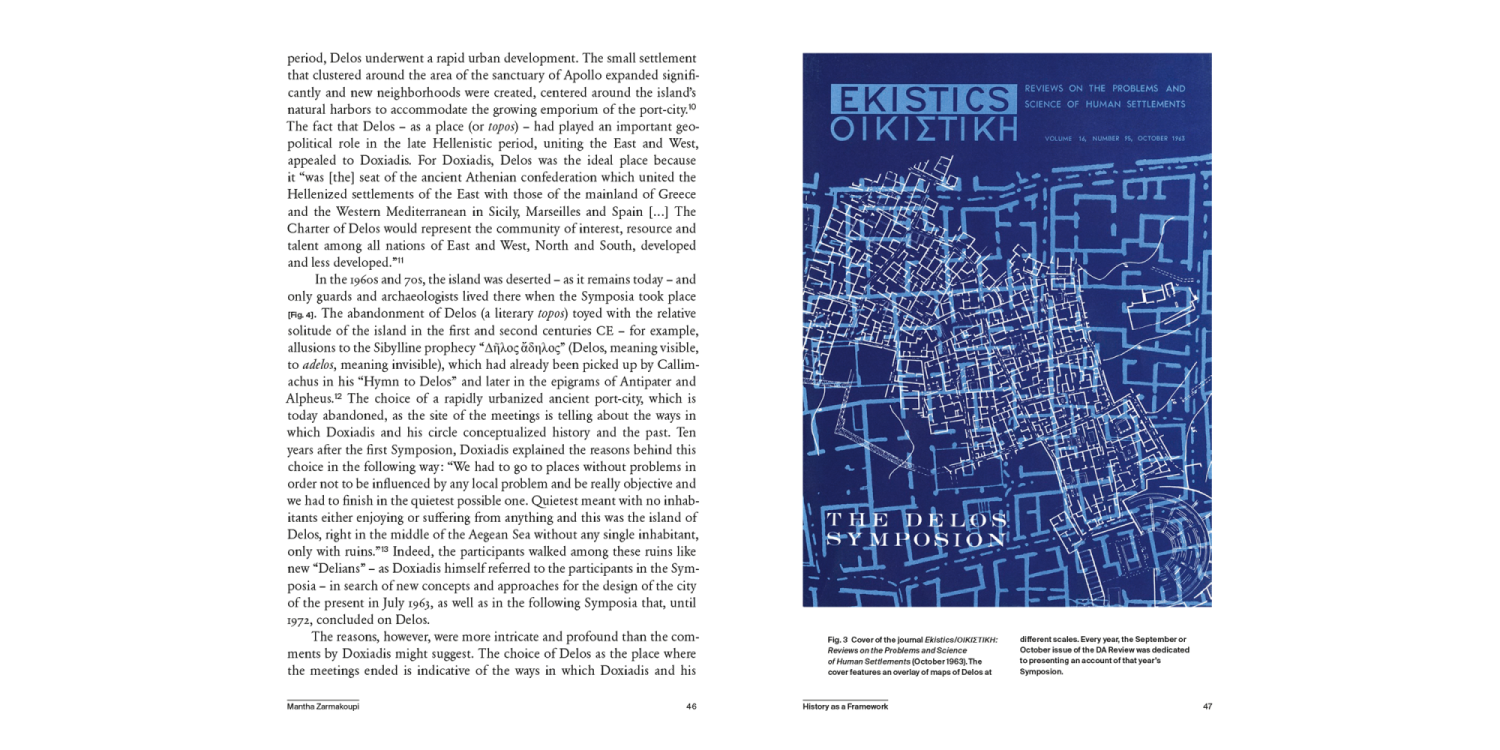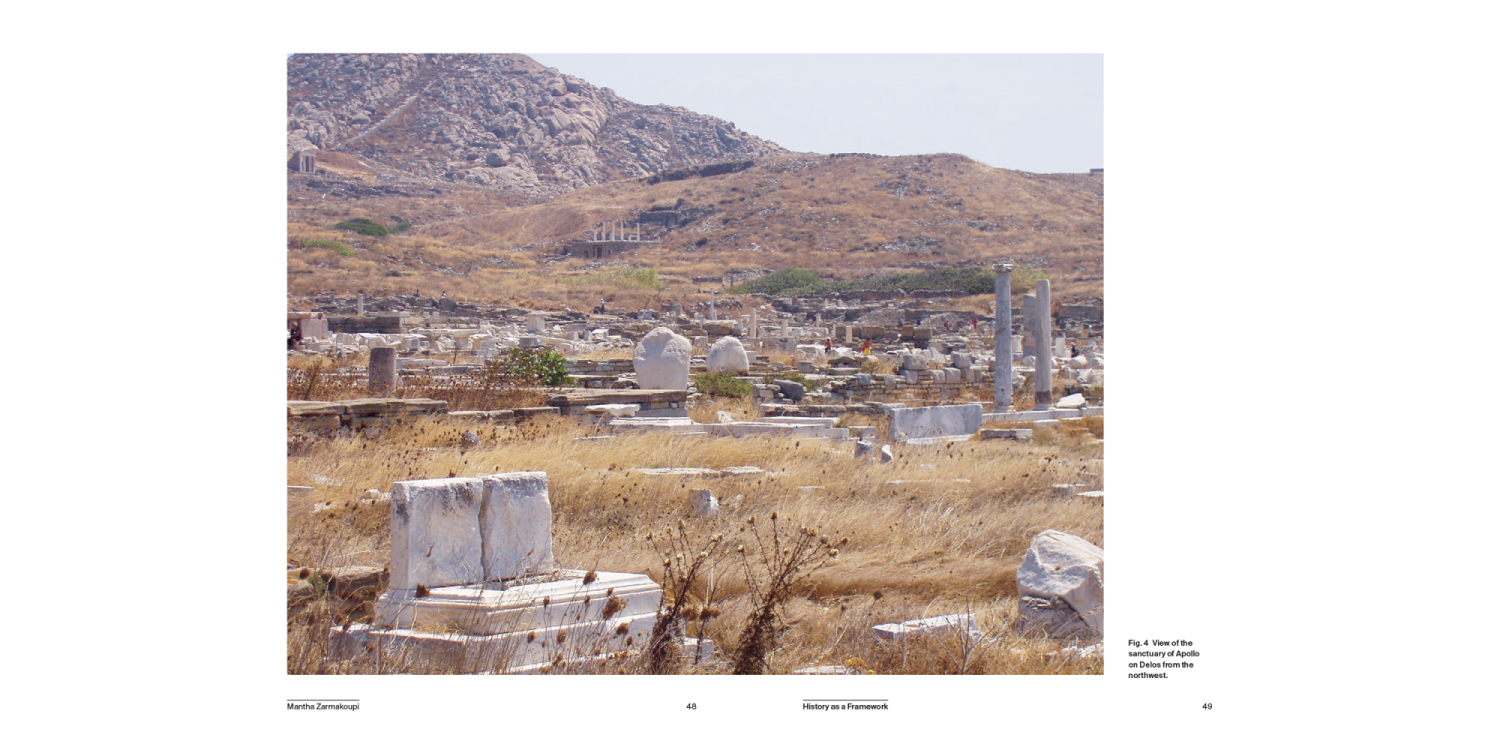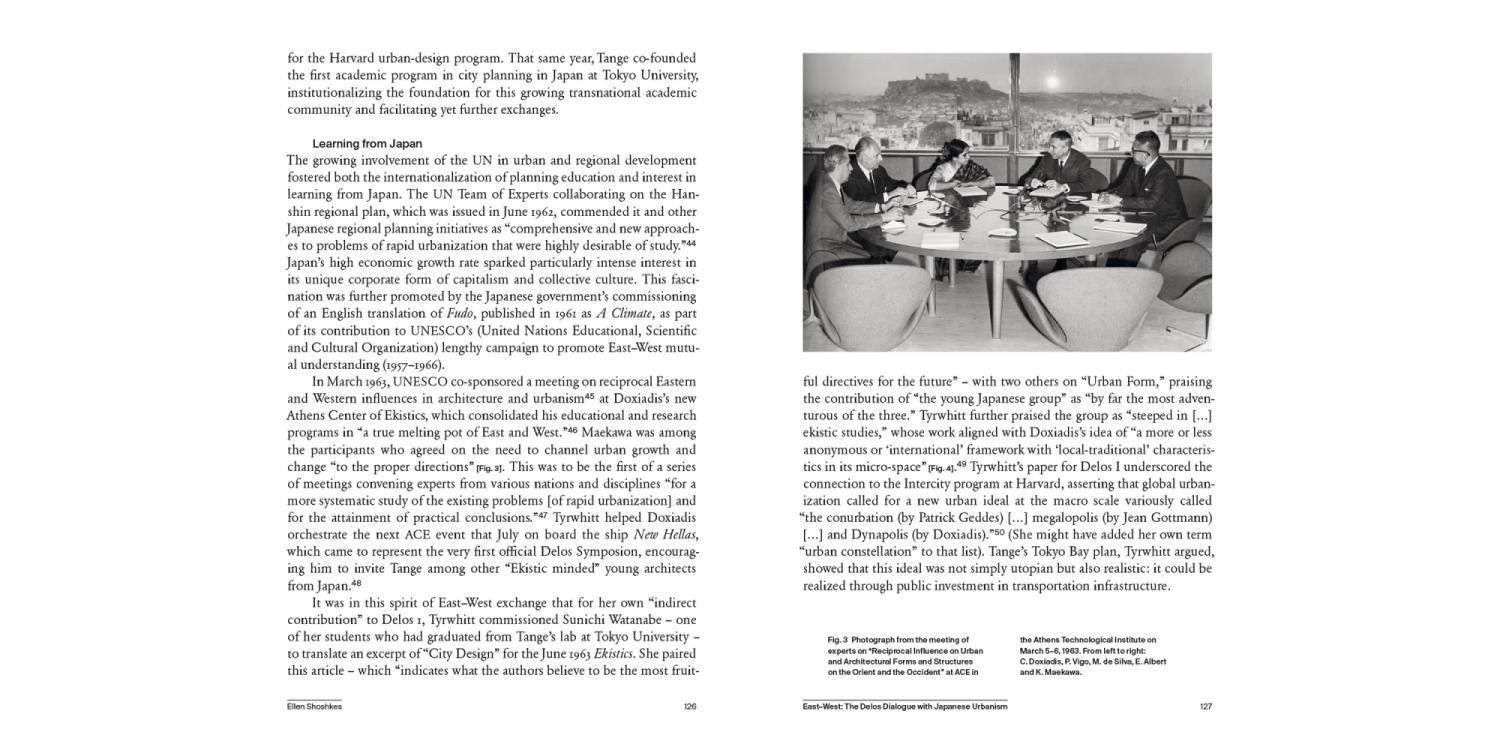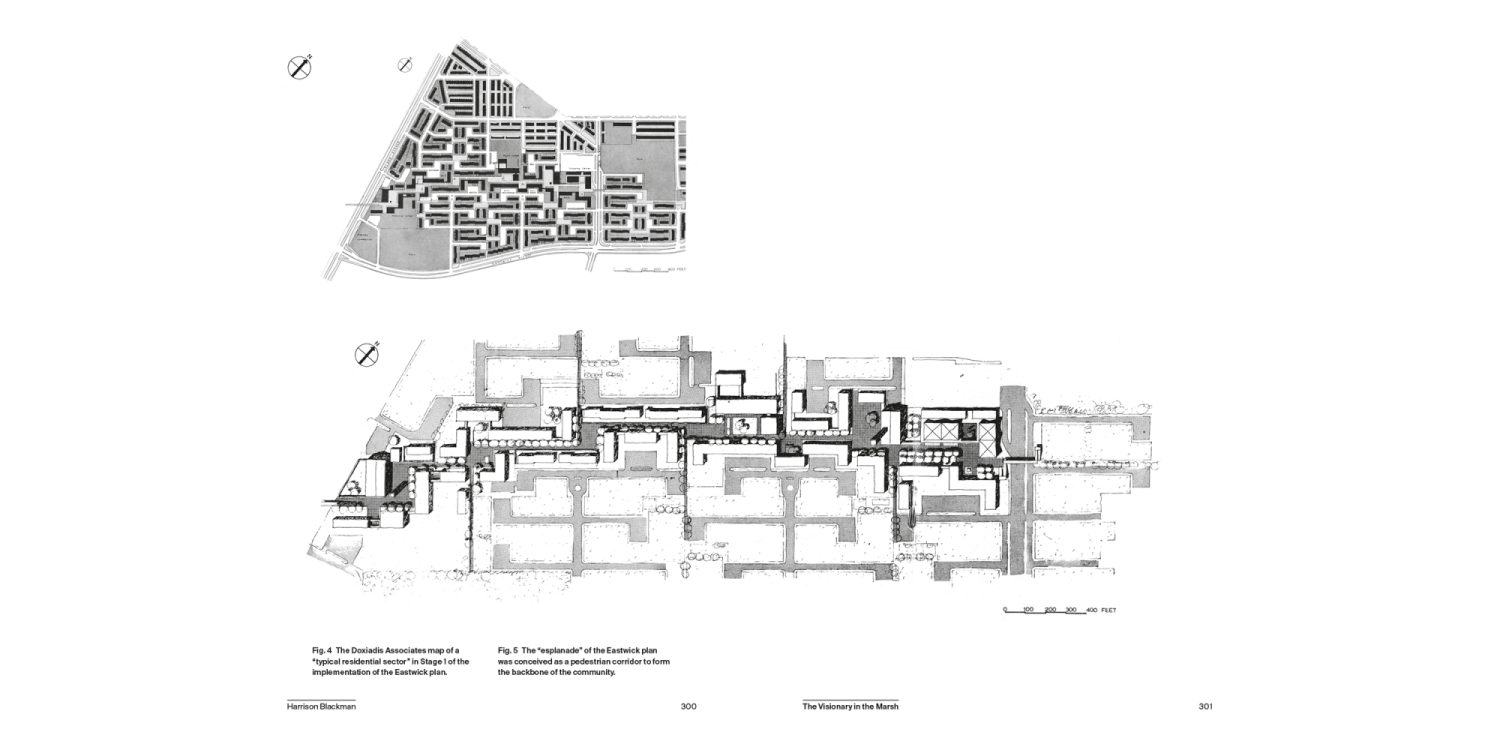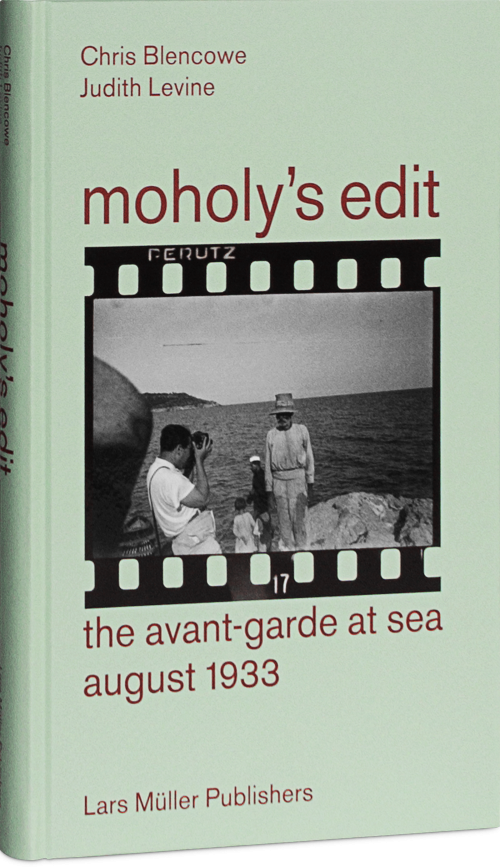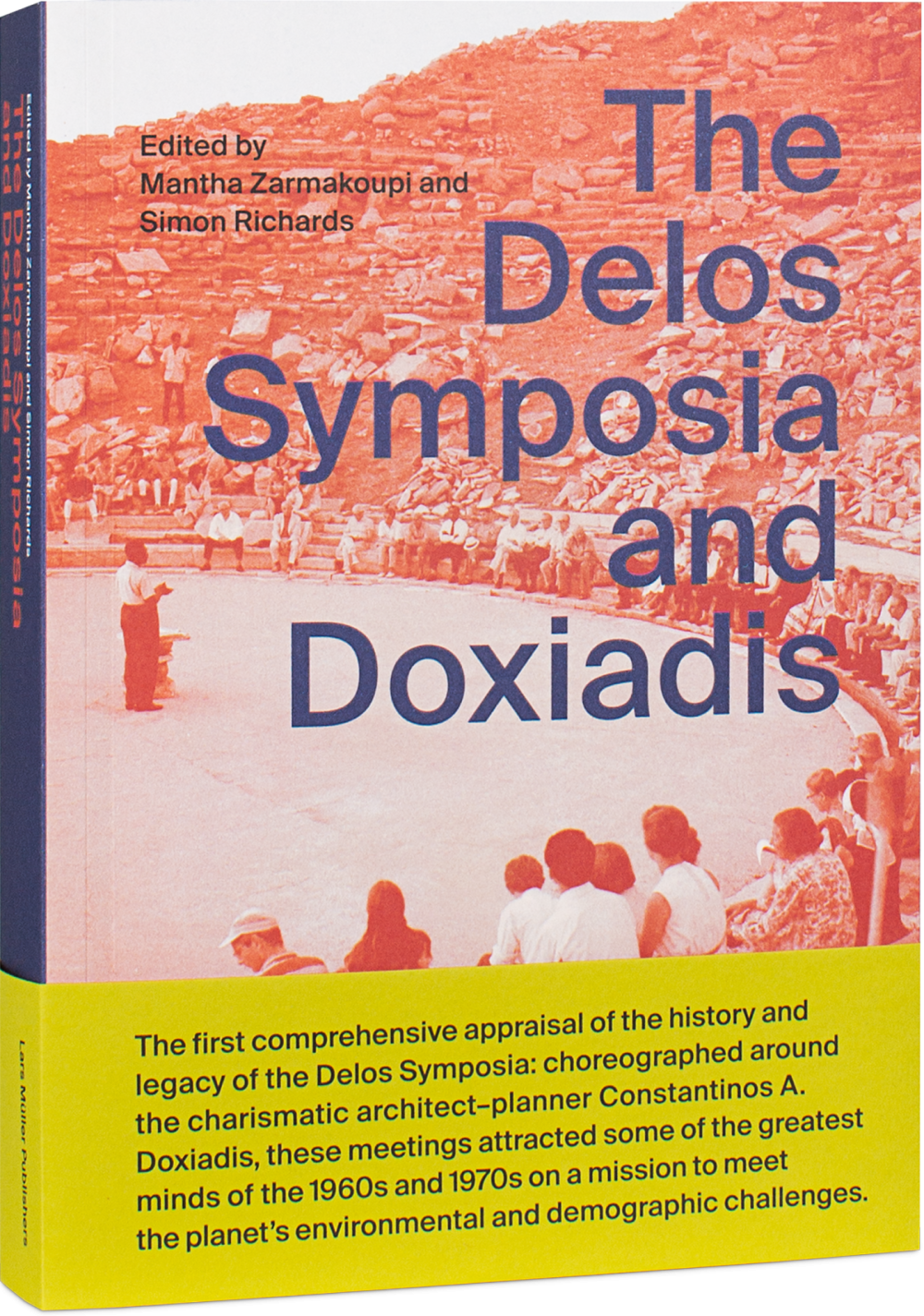
The Delos Symposia and Doxiadis
The Delos Symposia, which ran from 1963 to 1975, were a groundbreaking series of events dedicated to reviving the ambitions of CIAM by rethinking and reshaping the built environment to solve the planet’s environmental and demographic problems. Choreographed around the charismatic Greek architect- planner Constantinos Doxiadis, and generating an entirely new “science of human settlements” called “Ekistics,” this pioneering endeavour was run according to ancient Greek practices of the sympósion, with banquets, dancing and fancy dress parties taking place aboard cruise ships in the Aegean Sea. Each symposium concluded at the ancient port-city of the island of Delos, where influential figures as diverse as Margaret Mead, Arnold Toynbee, Sigfried Giedion, Buckminster Fuller, Barbara Ward, Jean Gottmann, Kenzō Tange, Jaqueline Tyrwhitt and Marshall McLuhan would formally proceed to the ancient city’s theater and participate in ceremonial declarations on world issues.
“The Delos Symposia and Doxiadis” offers the first comprehensive appraisal of the history and legacy of the Delos Symposia not only as a global humanitarian network, but also as an intellectual theater and publicity machine. It explores their ideals, commitments and fights, the way they fed into the colossal urban planning projects that Doxiadis was implementing across the world, and the lessons they might offer for contemporary thinking on sustainable development.
